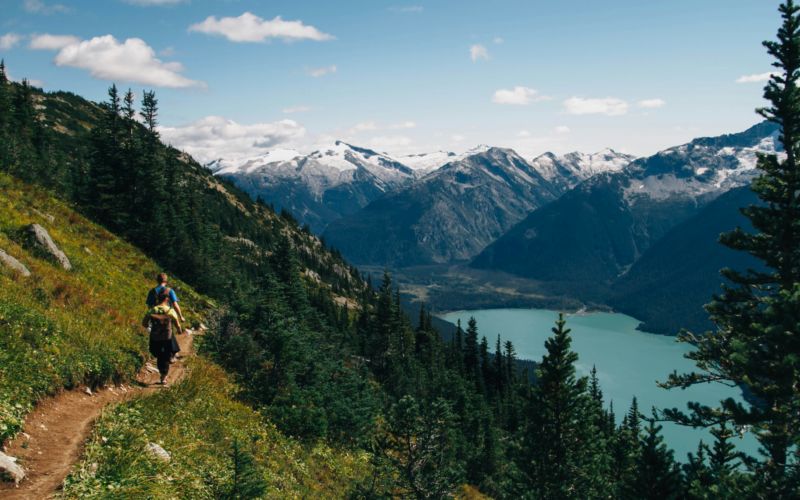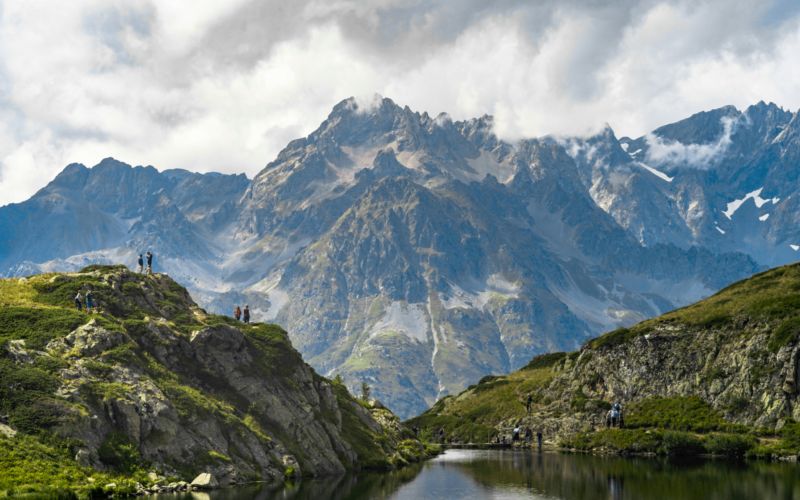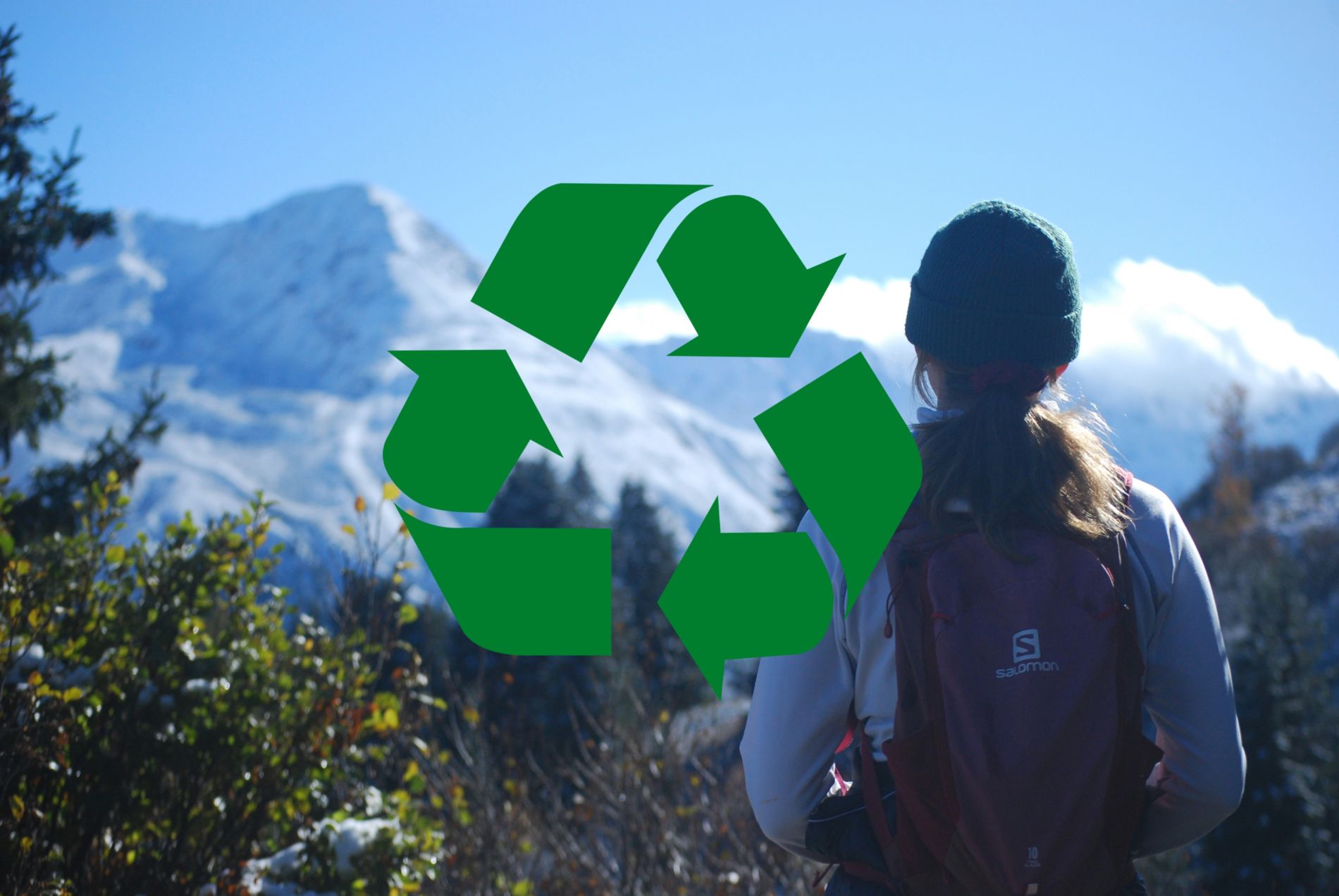As awareness continues to grow of the need to protect the environment in response to the effects of climate change, ski resorts and mountain communities are also stepping up to the plate to promote a sustainable and circular economy. Embracing the green transition is mission-critical for the future of the mountain tourism industry and involves spearheading a host of initiatives to reduce the impact of human activities on the environment and give any mountain range even greater tourist appeal, whether in the Alps or any other mountain destination in France or Europe.
The “Zero Waste Mountain 2030” charter
With close to 250 tons of waste dumped across our mountains in a single season (estimate by Mountain Riders), ski resorts have an instrumental role to play in accelerating the environmental transition while preserving their tourism activities. In 2023, the National Association of Mayors in Mountain Resorts (ANMSM) pledged its support to the Zero Waste Mountain 2030 charter, which is focused on the ambitious goal of totally eliminating littering across the mountains by 2030. This initiative can be credited to a collaborative effort with the Mountain Riders association and features three main objectives: reduce, educate and collect/evaluate. By signing the national Zero Waste Mountain 2030 charter, how are mountain resort communities and ski resorts taking action to combat climate change?
> Implementing an action plan with expert guidance
Mountain resort communities that sign the charter can count on assistance when it comes to defining measures to protect the environment, as well as support for transforming the tourism economy in mountain areas into a more sustainable tourism model.
> Organising waste collection campaigns
In 2024, 82 clean-up campaigns attracted some 4,700 volunteers and ultimately helped collect 18 tons of waste. All the waste is sorted, weighed or counted to establish an invaluable set of indicators. Topping the hall of shame are cigarette butts, food packaging, hard plastic fragments, fireworks and construction waste. Unfortunately, tourism is the main culprit behind these types of waste. To get involved, head over to the Mountain Riders website and check out the calendar and interactive map containing real-time data, where volunteers can sign up for a clean-up campaign during or outside the tourist season.
> Conducting pollution surveys
The Adopt’1 Spot programme involves carrying out a litter survey in a restricted and strategic tourist area. The idea is to measure trends in the area’s litter levels and define a strategy to reduce littering at the source. The survey includes two clean-up operations a year over a three-year period in the same area, on the same dates and with the same number of participants.
Develop local solutions
Improving production, consumption and recycling practices is the objective pursued by the SoluCir association, which promotes circular economy solutions across the Savoie Mont-Blanc area. SoluCir is engaging mountain tourism areas with circular economy principles in response to the “Zero Litter, Zero Waste” call for projects launched by France’s environment & energy management agency. The overriding idea is to recover the secondary materials that are currently not recycled in the global economy, at a time when available resources dwindle ever further while waste continues to pile up, especially in the mountains.

@peter-steiner
Adopting circular economy principles is especially important in mountain areas that are home to abundant reserves of primary resources, including forests, water and minerals. This approach aims to make greater use of the extracted resources while managing those resources according to sustainable practices, thereby creating new economic opportunities and jobs in what are often isolated areas. As a prime example, the “Bois des Alpes” association of timber industry professionals prioritises wood from forests across the Alps for use in construction projects. As such, contractors building timber chalets and tourist accommodation contribute towards sustainable development by sourcing their materials through short supply chains. This type of tourist accommodation plays a significant role in helping mountain resorts move even further down the environmental transition road. Other initiatives are also aimed at certifying eco-responsible accommodation and thereby encouraging owners to incorporate sustainable practices for cutting their energy and water use, minimising their waste and using eco-friendly materials.
FIND OUT MORE ABOUT THE EXHIBITORS AND SOLUTIONS AT THE MOUNTAIN PLANET 2024 EXHIBITION
Collecting and analysing data is vitally important for gauging the impact achieved by sustainable initiatives and steering future decisions in the right direction. According to the FIS Sustainability Guide for Ski Resorts, 12% of European ski resorts actively measured their carbon footprint in 2022, and 15% set targets to reduce their emissions. These figures may show that there is still a long road ahead, but they also reveal that awareness is growing. By developing innovative solutions, protecting the environment and adapting to climate change, ski resorts are paving the way to a more responsible and sustainable mountain tourism model.
a lire également
Environment

2 September 2024
Summer Activities: What Impact Do They Have on Mountain Ecosystems?
The rise of year-round tourism goes hand in hand with outdoor activities, but these can weaken mountain ecosystems. How are mountain regions tackling these ecological challenges? What eco-friendly practices are ...
Environment

17 September 2024
How Are Mountain Resorts Responding to Climate Change?
Mountain resorts didn’t wait for the Avenir Montagnes Plan to address climate change. They have always taken a proactive stance to preserve their environmental assets. They have strengthened their sustainable ...
Environment

26 July 2024
Ecotourism in the Mountains: Balancing Tourist Appeal and Biodiversity Protection
For mountain resorts, ecotourism presents both a challenge and an opportunity. It’s about addressing climate change while preserving nature, biodiversity, and protected areas. The growth of summer tourism and non-ski ...


